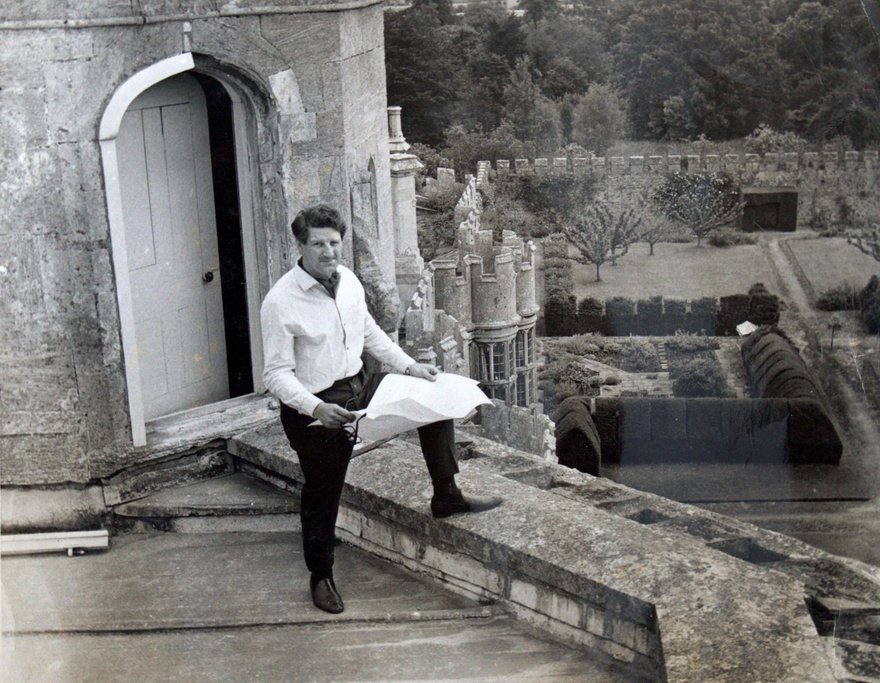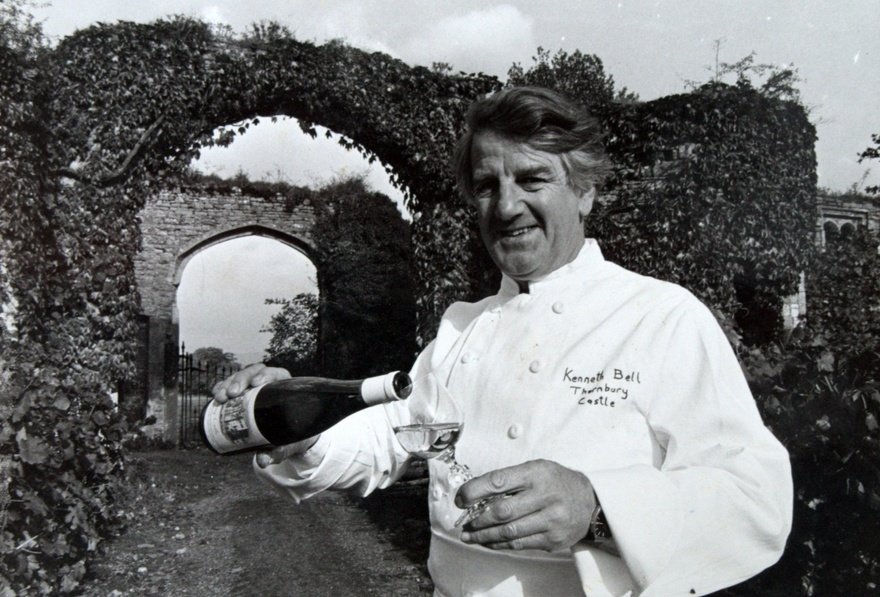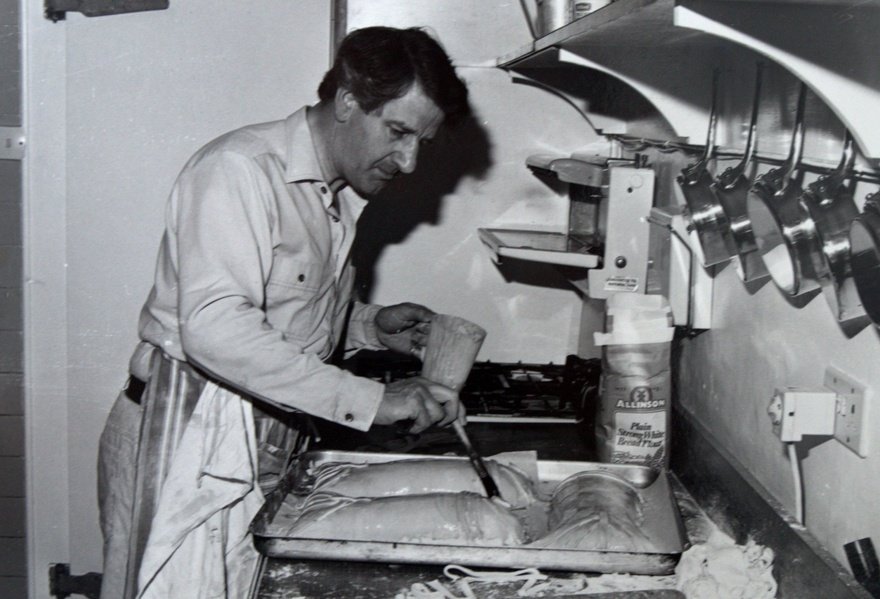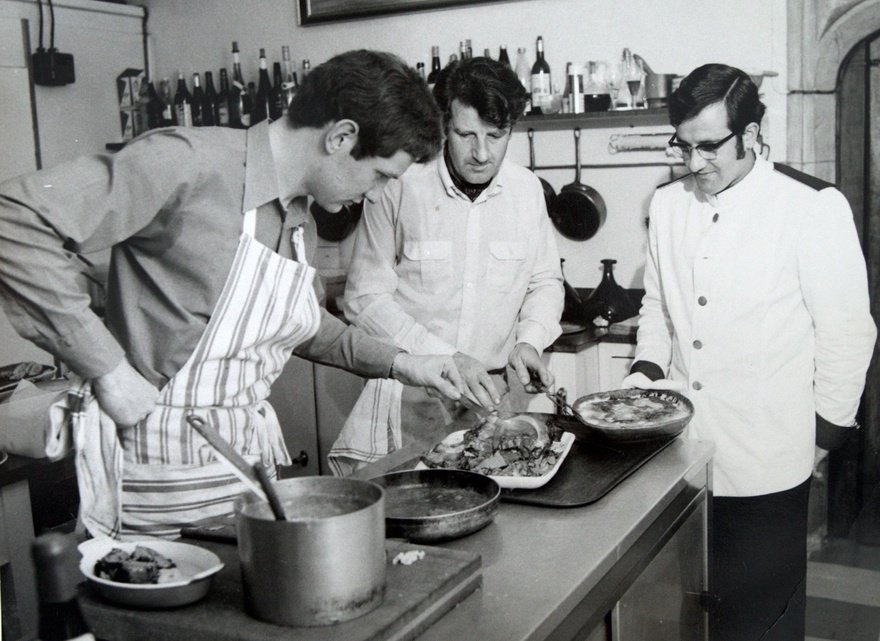‘Monarch of British restaurateurs' Kenneth Bell dies aged 94
Chef-restaurateur Kenneth Bell, former owner of Thornbury Castle near Bristol, died peacefully at home aged 94 last week.
Bell was born in 1927, the third child of an Edinburgh solicitor. He wanted to join the Royal Artillery after National Service, but failed the medical exam on the grounds of his hearing.
Instead, he went to study at the Lausanne Hotel School in Switzerland and graduated top of his year. After graduating he took up the management of the Old Bell in Malmesbury, Wiltshire, in the 1950s, where he met his wife-to-be Jill, who was a sister at Malmesbury Hospital. They married and, having left the Old Bell, moved to Bath, where he worked briefly for Jill's father, Robert Hawkins, at his engineering firm Redcliffe Industries in Bristol.
Having decided that engineering was not his calling, he returned to the restaurant business by taking on the lease of the Elizabeth on St Aldate's in Oxford. Bell spent seven years at the Elizabeth and, with Antonio Lopez taking care of front of house, in a very short time the restaurant established a reputation, with dons, undergraduates, visitors and local professionals among their regular customers. Bell was on good terms with many of his guests, which helped to spread by word of mouth news of the restaurant's good food – and wine, his selection of which was influenced by the advice of his then mentor, Edward Hale of Harveys.
Three children came along during his time in Oxford: Simon, Fiona and James.
Writing in his book Great British Chefs, published in 1989, Kit Chapman said that Bell "made the Elizabeth in Oxford vaut le voyage [worth travelling for] 20 years before Raymond Blanc's arrival in Summertown".
However, that was "just the curtain-raiser for his rise to celebrity" which "mushroomed" after he bought Thornbury Castle in Gloucestershire in 1966 for £26,000 from the Clifford family, having sold the Elizabeth to Lopez. It was his second attempt to buy the property and the family moved into what had been a private home.
It was Bell's time at Thornbury that saw him pave the way for Britain's gastronomic revolution. He had intended to open a plain and simple restaurant serving good, homecooked food, but his adventurous cooking – a mix of French, Spanish and English cuisine – became an attraction for gourmets and the guides. Bell even planted vines at the property to produce his own house wine.
"I intended Thornbury Castle when I took it over 10 years ago to be a simple country restaurant, but because it is a castle, people expected it to be very elaborate," he told the then Caterer & Hotelkeeper in 1977.
"I'm good at making things, good with my hands. I like working in the kitchen, in the garden, in the vineyard."
Raymond Postgate, founder of the Good Food Guide, described Bell's cooking as "gastronomically remarkable" in 1961, and the guide crowned him "the monarch of British restaurateurs". Thornbury Castle is believed to have been the first Egon Ronay Restaurant of the Year in 1967 and received a star in the 1974 Michelin Guide, which it held until 1982.
"He was absolutely at the top of the game. He was the forerunner for the great gastronomic revolution that happened in Britain in the 1980s," said Chapman.
"He was a great chef. He was one of the early pioneers, along with Francis Coulson and George Perry-Smith, who were great cooks and began to revive cooking in Britain after the war when Britain was a gastronomic desert."
Hotelier Stephen Ross joined Thornbury in 1971 and worked under Bell in the kitchen. "I think the set menu was £27 and sixpence," he remembered. "The food was outstandingly good. He was very demanding, very individual, single-minded, focused and determined, and very, very precise. Everything had to be done absolutely right. But he wasn't too concerned with classic cuisine – he wanted to do really creative food. He was very modest, a very quiet man, he wasn't somebody that would perform in front of customers. He kept very much in the background.
"I was very privileged to have worked with him. He was the number-one chef in Britain outside London at that time. To be the best chef-patron in the country without having gone through years of working with other chefs was quite remarkable, really. He just proved that if you were prepared to buy the very best ingredients and to be individual and do it your own way, that you could make a go of something."
Bell was also the first British chef to receive an MBE in the early 1970s – recommended for the honour by Egon Ronay himself. "Being such a modest man, he kept it very much under his hat; he never talked about it," said Ross.
He and Ross later became business partners, launching the company Bell & Ross, under which they ran Bath establishments including Homewood Park hotel and Popjoys restaurant, which held a Michelin star between 1975 and 1977.
After the children left home and Kenneth and Jill divorced, the portion of the castle in which the family had lived was converted into guest bedrooms in the 1980s, turning it into a hotel. Bell sold Thornbury Castle in 1986 to Maurice Taylor, who was visiting from his home in California and made him an offer.
He met Molly, his second wife, in 1980. The pair retired to the Dordogne in France, where they spent eight years, before returning to the Bristol area, and married in 1991. They later moved to North Cornwall, just outside Padstow, where he died peacefully at home in his armchair on 29 July.
"What you see in Britain today is the result of the work done not just by Kenneth Bell, of course, but also the Roux brothers. Their kitchens became training grounds for young British chefs who aspired to greatness and were excited about proper cooking, good food, good wine, fresh ingredients and quality," said Chapman.
"Bell was a character as well – a great personality. He was terrific. He was quite something, the like of which you don't often see these days."
Bell is survived by Molly; his three children, Simon, Fiona and James; and stepdaughter Jane.









